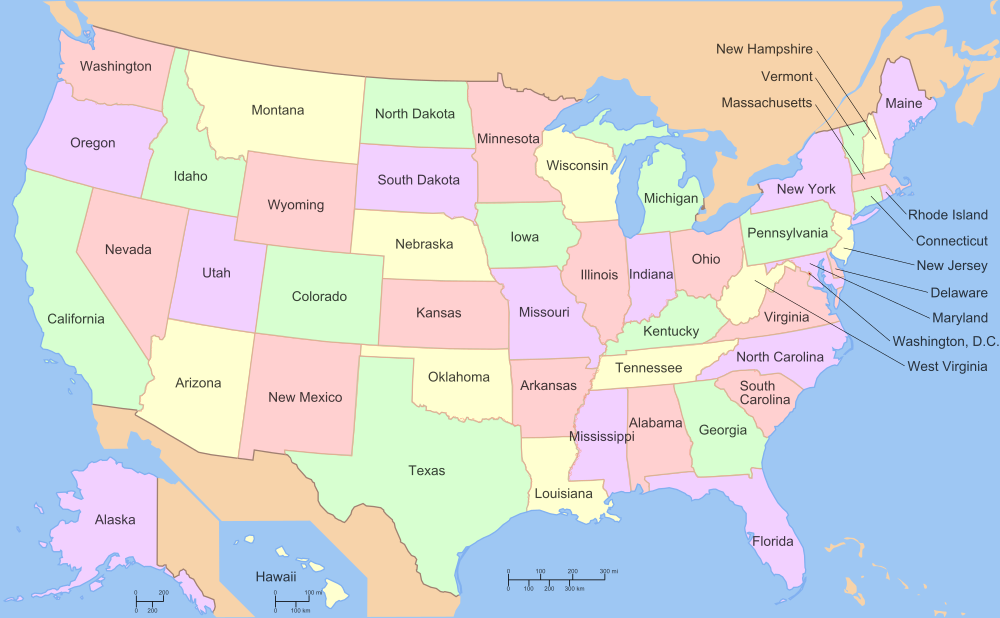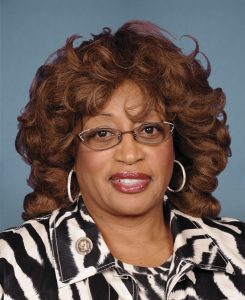The National Council of Nonprofits (NCN) and a host of state associations are in Washington, D.C. this week to lobby on behalf of the sector. While many discussions have been had regarding pressing issues and concerns facing the sector today, at least some eyes are looking ahead to 2020 — but not for the reason some might think.
Congress distributes $800 billion annually to communities based on census data. Those sorts of dollars are why the NCN is already raising concerns with members of Congress 18 months ahead of the census, according to Tim Delaney, president and CEO. Gaps created by dollars lost due to an inaccurate count risk falling on the shoulders of nonprofits, said Delaney.
“If somebody is not counted, that means that the state does not receive the resources, but that person still exists and still has needs,” he said.
The council submitted a statement to the House Committee on Oversight and Government Reform last month, raising several concerns about the lead-up to 2020, including a proposed citizenship question, digital divide among citizens, and alleged underinvestment in the census process. Asking census takers about their citizenship status risks an inaccurate count, the statement explains.
The 2020 census will be conducted primarily online, yet 16 percent of American adults do not use the Internet. Further, the statement notes that 42 percent of senior citizens, 34 percent of individuals who did not graduate high school, and 26 percent of households earning less than $30,000 per year do not use the Internet.
The statement references seven complaints filed in federal court relating to the census, including a complaint filed by the NAACP in the United States District Court for the District of Maryland that highlights, among other concerns, that the U.S. Census Bureau has been underfunded, receiving $1.47 billion in 2017 — 10 percent below what was requested by the Obama administration.
The NCN will hold its annual member learning event later this week, with the last session dedicated to the census — highlighting the desire among members to learn more. Some state associations, including Washington Nonprofits and the Michigan Nonprofit Association (MNA), have already begun advocacy efforts, Delaney said.
MNA conducted a soft launch of its Be Counted Michigan 2020 website and campaign last week, according to Donna Murray-Brown, president and CEO. The website states that Michigan received more than $14 billion in support in 2015 through federal programs that use census data such as Medicaid, Head Start, Section VIII vouchers, and nutrition assistance programs. The state loses $1,800 in support per year for every uncounted person.
Murray-Brown anticipates a more robust campaign launch in September. Early census concerns identified by MNA leadership include the fear that some immigrants might have in outing themselves to the federal government and internet accessibility in rural portions of the state. MNA has sought to localize its statewide infrastructure with a collection of census hubs in various regions of the state. Hubs will offer grants to organizations seeking to better educate constituents about the census, trainings, peer support, and a local presence with which to engage the media with a united voice, Murray-Brown said.
Six hubs are identified on the website with the potential of more to come. MNA leaders anticipate activating the hubs in early September, according to Murray-Brown.
Washington Nonprofits debuted a six-minute video highlighting the importance of the census, featuring state nonprofit leaders, at its annual conference on May 16. The video was a means of generating attention to the issue in 2018, but will also be used in the coming year, said Laura Pierce, executive director. At stake is the $13.7 billion in annual federal funding the state receives through initiatives tied to census data, per the video. It also quotes Gov. Jay Inslee in noting that Washington loses $4,800 annually for every uncounted household
“I think that it is really important to get this on the radar screen and I think that it will take some time for people to understand it fully and take action on it,” said Pierce. “I don’t think it’s early at all.”
Association concerns include ensuring that the U.S. Census Bureau has adequate resources, broadband access among low-income and rural residents, the potential citizenship question, and the lack of questions relating to sexual orientation and gender identity. Pierce stressed that the association’s focus was not purely on low-income residents, but rather everyone in the state. Causes such as arts and environment impact individuals across the socioeconomic spectrum.
Pierce anticipates old-fashioned community organizing throughout the state, with organizations in some communities already active in engaging with constituents about the importance of being counted. She sees nonprofits as critical in efforts to engage hard-to-reach communities.
David Streeter, director of public policy and advocacy, was in Washington, D.C. on Wednesday meeting with the association’s state delegation. Democratic members are in agreement that a citizenship question would be inappropriate, while those across parties are in agreement that an accurate count is needed.
Streeter said that members of Congress are aware of underfunding concerns and that it has been Washington Nonprofit’s goal to share those concerns with members of the nonprofit community. There is still time to act, he said, with the proposed census being posted for public comment serving as the next step.
“People are definitely aware of the need for an accurate census count,” said Streeter. “As it gets closer, a lot more focus and attention will be placed on that.”











